Sports Materials

What is the future of biodegradable materials in sports apparel ?
The article explores the future of biodegradable materials in sports apparel, highlighting their benefits and challenges. Biodegradable materials offer environmental benefits by reducing waste and pollution, supporting sustainable practices, and providing new opportunities for innovation in sports apparel design and functionality. However, they also face challenges such as cost, durability, and availability. The article suggests potential applications of biodegradable materials in sports apparel, including running shoes, activewear, team uniforms, and accessories. It concludes that while challenges must be addressed, the benefits of using biodegradable materials make them an attractive option for sports apparel manufacturers looking to reduce their environmental impact and appeal to eco-conscious consumers.

How have advancements in materials science impacted sports equipment design ?
Advancements in materials science have significantly impacted sports equipment design, improving durability, performance, safety, comfort, and customization. Examples include carbon fiber bats, advanced composite tennis racquets, titanium golf clubs, aerodynamic cycling helmets, shock-absorbing running shoes, breathable athletic apparel, customized orthotics, and personalized mouthguards. These innovations not only enhance the athletes' performance but also reduce waste, making it an environmentally friendly option.

What new materials are being used in the production of sports equipment ?
The sports industry is constantly evolving, and with that evolution comes the introduction of new materials used in the production of sports equipment. These materials are designed to enhance performance, increase durability, and improve safety for athletes. Some of the latest materials being used in sports equipment production include carbon fiber, titanium, aerogel, Kevlar, and polyurethane foam. Carbon fiber is lightweight yet incredibly strong, making it ideal for use in items such as bicycle frames, tennis rackets, and golf clubs. Titanium is lightweight, corrosion-resistant, and extremely durable. Aerogel is incredibly light yet strong enough to support significant weight. Kevlar is known for its exceptional strength and heat resistance. Polyurethane foam provides excellent cushioning and shock absorption properties. As technology advances and athletes demand better performance from their gear, we can expect to see even more innovative materials being developed and incorporated into sports equipment production.

What is the impact of lightweight materials on athletic performance ?
The article discusses the impact of lightweight materials on athletic performance, highlighting their benefits and potential drawbacks. Lightweight materials can improve speed, agility, comfort, durability, performance, and precision in sports equipment and apparel. However, they often come at a higher cost and may not be widely available or easily obtainable. Durability concerns and comfort trade-offs should also be considered when selecting lightweight materials for sports equipment and apparel. Overall, athletes should carefully weigh these factors to make informed decisions that maximize their performance while minimizing any potential risks or drawbacks associated with lightweight materials.
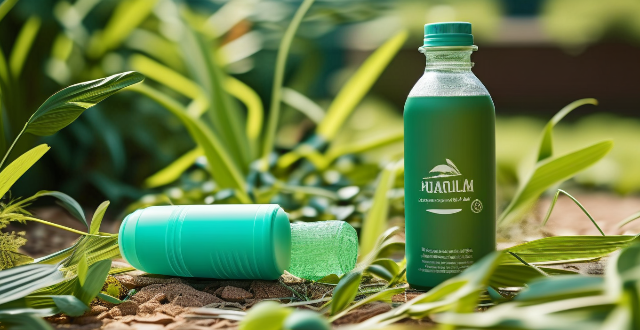
What are some eco-friendly options for sports equipment ?
Eco-friendly options for sports equipment include using recycled materials, sustainable resources like bamboo and organic cotton, reusable water bottles, energy-efficient gym gear, secondhand items, and repairing damaged equipment.

How does protective clothing work to prevent exposure to hazardous materials ?
Protective clothing shields wearers from hazardous materials through barrier materials, sealed enclosures, breathability features, and disposability. Its effectiveness depends on proper training, fit, maintenance, and responsible disposal practices.

What materials are commonly used in ecological design, and why ?
This article discusses materials used in ecological design, including recycled and reclaimed materials such as recycled metals, reclaimed wood, and glass; sustainable materials like bamboo, cork, and linoleum; and low-impact materials such as concrete, insulation, and sheep's wool. It emphasizes that ecological design prioritizes materials with minimal environmental impact throughout their life cycle.

What materials are used to make durable iPhone cases ?
Durable iPhone cases are designed to protect your device from drops, scratches, and other types of damage. The materials used to make these cases play a crucial role in determining their durability and effectiveness. In this article, we will explore the different materials used to make durable iPhone cases and discuss their benefits and drawbacks.
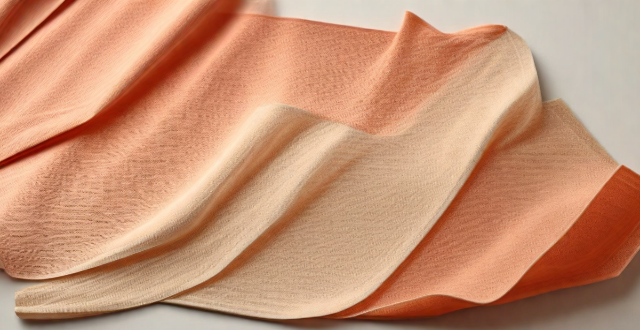
How do smart fabrics and materials enhance sportswear ?
Smart fabrics and materials are revolutionizing sportswear by offering enhanced performance, comfort, and functionality. They provide moisture-wicking ability, breathability, stretchability, durability, and antimicrobial properties. These features help athletes stay dry, comfortable, flexible, durable, and hygienic during intense workouts or competitions. Overall, smart fabrics and materials play a crucial role in enhancing sportswear, providing athletes with improved comfort, performance, and functionality.

What are some good tools for creating and sharing study materials ?
This article discusses various tools that can be used for creating and sharing study materials. Google Docs, Canva, and Quizlet are some of the best tools for creating study materials, while Dropbox, Padlet, and Edmodo are great for sharing them. These tools offer features like collaboration, accessibility, integration, design, gamification, storage, security, visualization, educational focus, and assessment. By utilizing these tools, students can enhance their learning experience and collaborate with others more efficiently.
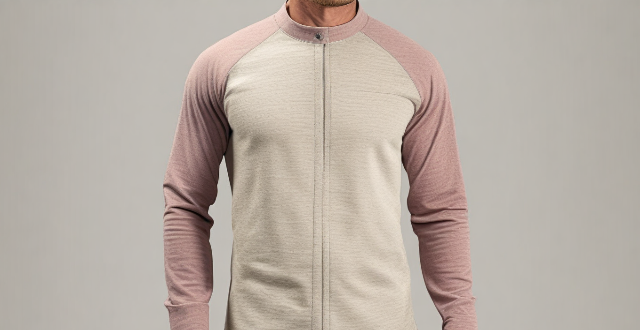
What are the most common materials used in the production of protective clothing ?
Protective clothing is designed to safeguard individuals from hazardous environments or conditions. The materials used for such garments play a crucial role in providing the necessary protection while ensuring comfort and functionality. In this article, we will explore the most common materials used in the production of protective clothing: Polyester, Cotton, Nylon, Neoprene, and Gore-Tex.

What are some emerging technologies or materials being developed for improved radiation protection ?
This article discusses various emerging technologies and materials being developed to improve radiation protection, including advanced shielding materials like nanomaterials and metal-organic frameworks (MOFs), smart detection systems for real-time monitoring and machine learning-powered analysis of radiation levels, personal protective equipment (PPE) such as next-generation spacesuits and radiation-resistant clothing, medical countermeasures like radioprotectants and gene therapy, and nuclear waste management solutions like Synroc and glassification. These advancements aim to enhance safety and security in environments where radiation is a concern, across sectors such as nuclear power generation, medical applications, space exploration, and nuclear waste management.

What are some emerging trends in the field of energy storage materials research ?
The text discusses the latest trends in energy storage materials research, focusing on solid-state batteries, flow batteries, metal-air batteries, supercapacitors, redox flow batteries, hybrid energy storage systems, nanostructured materials, smart grid integration, thermal energy storage, and organic/bio-based materials. Each section provides a brief overview of the technology's advantages and current research challenges.

How has technology influenced the design of sports fashion ?
Technology has significantly influenced sports fashion design, introducing advanced materials, digital printing techniques, smart wearables, and increased customization options. These innovations have enhanced the functionality, comfort, and style of sports apparel, catering to individual preferences and needs.

Can speed reading be applied to all types of texts, including technical and academic materials ?
Speed reading can be applied to all types of texts, including technical and academic materials, but it is important to consider the challenges associated with these types of texts. While speed reading offers time-saving and comprehension improvement advantages, technical and academic materials often contain complex terminology and concepts that require careful consideration and analysis. To effectively apply speed reading to these materials, individuals can employ pre-reading strategies such as previewing and setting objectives, during reading strategies like skimming and scanning, and post-reading strategies including reviewing and summarizing. By using these strategies, readers can maximize the benefits of speed reading while still achieving a deep level of comprehension.

What innovative materials and technologies are being used in modern construction to address climate challenges ?
Innovative materials and technologies in modern construction are being used to address climate challenges. These include green building materials, energy-efficient technologies, water efficiency solutions, and waste management strategies. Recycled materials, eco-friendly insulation, low-emission coatings, solar power systems, smart building management, high-performance glass, rainwater harvesting systems, water-saving fixtures, on-site recycling centers, and waste-to-energy technologies are among the key solutions being adopted. These advancements aim to reduce the environmental impact of buildings, improve energy efficiency, and enhance sustainability.

How have traditional sports uniforms been reimagined in high fashion ?
Traditional sports uniforms have been reimagined in high fashion by incorporating modern design elements, innovative materials, and unique color schemes. This transformation has resulted in a fusion of functionality and style that appeals to both athletes and fashion enthusiasts alike. Here are some ways traditional sports uniforms have been reinvented: 1. Incorporating Modern Design Elements: High fashion designers have incorporated modern design elements into traditional sports uniforms, such as asymmetrical cuts, bold patterns, and intricate detailing. These elements add a touch of sophistication and visual interest to the garments while still maintaining their functionality on the field or court. 2. Using Innovative Materials: In recent years, there has been a focus on using innovative materials in sportswear design. These materials can provide enhanced performance benefits, such as moisture-wicking capabilities, breathability, and stretchiness. High fashion designers have taken advantage of these advancements to create stylish yet functional sports uniforms that meet the demands of today's athletes. 3. Unique Color Schemes: Traditional sports uniforms often feature team colors or simple color combinations. However, high fashion designers have pushed the boundaries with unique color schemes that make a statement on and off the field. Bright neons, pastel hues, and even metallic finishes have become popular choices for modern sports uniforms. 4. Collaborations with High Fashion Brands: Collaborations between sports teams and high fashion brands have also played a role in reimagining traditional sports uniforms. These partnerships allow for the exchange of ideas and expertise between two industries, resulting in unique designs that combine athleticism with fashion-forward aesthetics. 5. Athleisure Wear: The rise of athleisure wear has also influenced the reimagining of traditional sports uniforms. This trend blends athletic apparel with everyday fashion, creating garments that can be worn both during physical activities and casual outings. High fashion designers have embraced this concept by designing sports uniforms that double as stylish streetwear.

Can you suggest any durable and long-lasting sports equipment brands ?
Durable and Long-Lasting Sports Equipment Brands

How have advancements in technology impacted sports equipment ?
Advancements in technology have significantly impacted sports equipment, revolutionizing materials, performance tracking, safety features, training methods, and customization options. Key areas of influence include: 1. **Material Innovations**: Introduction of lightweight and durable materials like carbon fiber and advanced plastics, as well as smart fabrics for performance wear and thermoregulation. 2. **Performance Tracking**: Development of wearable technology such as fitness trackers and GPS devices, along with biomechanical analysis tools like motion capture systems and sensor technology. 3. **Safety Enhancements**: Incorporation of impact sensors and smart concussion management in helmets, synthetic turf for fields, and energy-efficient LED lighting for courts. 4. **Training Aids**: Integration of Virtual Reality (VR) and Augmented Reality (AR) for simulation training and skill development, as well as data analytics for video analysis and biometric feedback. 5. **Equipment Customization**: Application of 3D printing for custom orthotics and jaw guards, and personalization of sports gear like batting gloves and cycling kits. These technological advancements continue to enhance athletic performance, safety, and enjoyment across various sports disciplines.
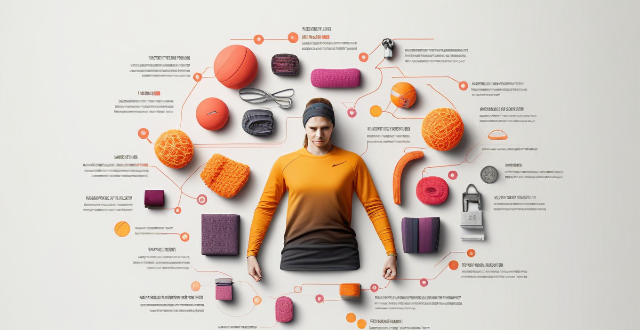
How do smart fabrics work in sports clothing ?
Smart fabrics in sports clothing incorporate conductive threads and sensors to monitor movements, vital signs, and environmental factors. They provide real-time feedback for performance enhancement and injury prevention. Features like thermoregulation and self-cleaning improve comfort and durability. Integration with devices allows for a seamless user experience, while customization options offer personalized fits and designs.
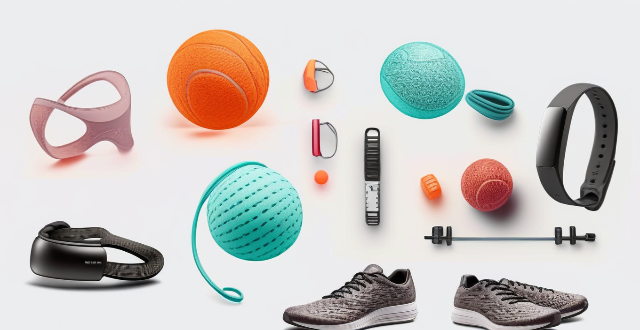
What are the latest innovations in sports equipment ?
The latest sports equipment innovations include smart wearable devices, improved materials and designs, virtual and augmented reality technologies, and connected gym equipment. These advancements aim to enhance performance, safety, and convenience for athletes at all levels.
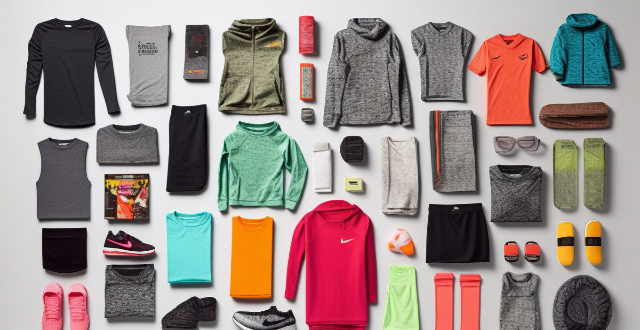
What are the must-have pieces in a sports fashion wardrobe ?
A well-curated sports wardrobe is essential for those who want to look good while working out or running errands. Must-have pieces include athletic shoes, leggings, sports bras, tank tops and t-shirts, shorts and skirts, jackets and hoodies, and accessories like hats, sunglasses, fitness trackers, and water bottles. Popular brands include Nike, Adidas, Reebok, Lululemon, Sweaty Betty, Under Armour, Brooks, Patagonia, Outdoor Voices, Asics, New Balance, The North Face, Columbia, Fitbit, and Hydro Flask.

Can reading about sports help improve one's own athletic performance ?
Reading about sports can enhance athletic performance by providing insights into techniques, strategies, and mental approaches. It helps in technique improvement, mental preparation, and injury prevention. To apply this knowledge, set clear goals, choose relevant resources, practice what you learn, and seek feedback for adjustments.

What is the role of nanotechnology in designing sports apparel ?
Nanotechnology has revolutionized sports apparel design by improving performance, comfort, durability, and enabling the development of smart garments. Nanofibers and nanoparticles enhance fabric strength, flexibility, and moisture-wicking capabilities, while lightweight and breathable fabrics increase comfort. Smart garments with sensors monitor vital signs in real-time for optimized training.

What are the key elements of a modern sports luxe wardrobe ?
A modern sports luxe wardrobe is characterized by its combination of athletic and luxury elements, creating a stylish yet comfortable look. Here are the key elements to consider when building your sports luxe wardrobe: 1. High-Quality Basics: The foundation of any sports luxe wardrobe is high-quality basics. These include items such as well-made t-shirts, sweatpants, and leggings. Look for pieces made from premium materials like organic cotton, cashmere, or sustainable fabrics. 2. Athletic Footwear: Footwear plays a crucial role in achieving the perfect sports luxe look. Opt for sneakers or slides that are both comfortable and stylish. Brands like Nike, Adidas, and Common Projects offer a wide range of options to suit your personal style. 3. Accessories: Accessories are what take your sports luxe wardrobe from casual to chic. Incorporate statement pieces such as baseball caps, sunglasses, and watches to elevate your look. 4. Outerwear: Outerwear is essential for completing your sports luxe wardrobe. Look for jackets and coats that combine functionality with fashion. Bomber jackets, denim jackets, and lightweight puffers are all excellent choices. 5. Activewear: Incorporating activewear into your wardrobe allows you to seamlessly transition between workouts and everyday activities. Look for pieces that are designed for performance but also have a fashion-forward aesthetic.

What role does technology play in shaping sports-inspired fashion ?
Technology has significantly impacted sports-inspired fashion through fabric innovations, digital marketing, and customization options. Advanced fabrics like nanotechnology, smart fabrics, and sustainable materials enhance performance and style. Social media platforms and virtual/augmented reality technologies boost brand promotion and customer engagement. Customization features allow for unique designs, while 3D printing opens up personalized sportswear possibilities.

8 moves to make it easy for you to clean the sports kettle. When purchasing sports kettle, it should be firm, durable, safe and reliable

In what ways have advancements in technology facilitated the globalization of sports ?
Globalization of Sports through Technological Advancements Introduction: - Technology has played a crucial role in making sports a universal language, connecting fans and athletes across the globe, and enhancing the overall experience of sporting events. 1. Improved Communication and Connectivity: - Fans can access information about their favorite sports and teams instantly through smartphones, tablets, and laptops. - Social media platforms have revolutionized the way fans interact with each other and their favorite athletes. 2. Advanced Broadcasting Technology: - Live streaming services and high-definition television broadcasts provide an immersive viewing experience for millions of people worldwide. - Virtual reality (VR) and augmented reality (AR) technologies are transforming the way fans experience sports. 3. Enhanced Training Methods: - Data analytics tools enable coaches and trainers to track an athlete's performance metrics and create personalized training programs. - Virtual reality training simulations offer athletes a safe and controlled environment to practice and refine their skills without the risk of injury. 4. Increased Accessibility and Inclusivity: - Technology has played a crucial role in making sports more accessible and inclusive for people with disabilities through advancements in wheelchair design and materials. - The rise of online gaming and esports has created new opportunities for people to participate in competitive activities regardless of their physical abilities or location. Conclusion: - Advancements in technology have transformed the way we experience and participate in sports, making it a global phenomenon that unites people through shared interests and passions.
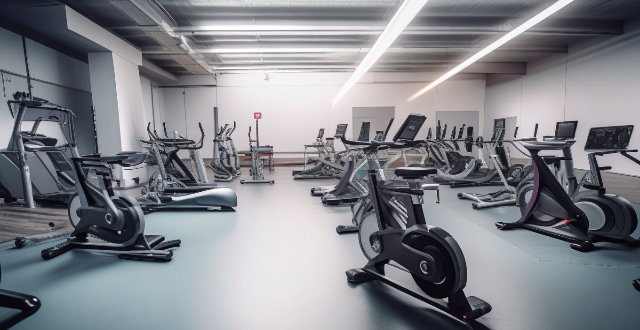
How has 3D printing technology changed the way we design and produce sports equipment ?
3D printing technology has revolutionized the sports equipment industry by enabling customization, rapid prototyping, complex designs, and on-demand production. This innovation benefits athletes with personalized gear, faster design cycles, optimized performance, and sustainable practices.

Are there any health concerns associated with prolonged use of sports tracking devices ?
Sports tracking devices have become increasingly popular in recent years, as they allow individuals to monitor their physical activity and fitness levels. However, there are potential health concerns associated with the prolonged use of these devices. One major concern is the excessive reliance on data provided by sports tracking devices. While it is helpful to track your progress and set goals, relying solely on the numbers can lead to a disconnect between how you feel physically and what the device is telling you. This can result in overtraining or pushing yourself too hard, which can cause injuries or burnout. Another issue is the neglect of other aspects of fitness that cannot be measured by sports tracking devices. For example, flexibility, balance, and coordination are important components of overall fitness but are often overlooked when focusing solely on metrics like steps taken or calories burned. This can lead to imbalances in your fitness routine and potentially increase your risk of injury. Prolonged use of sports tracking devices can also cause skin irritation or allergies due to the materials used in the device's construction. Some people may be sensitive to certain metals, plastics, or adhesives used in the device, which can cause redness, itching, or swelling at the site of contact. Additionally, wearing a sports tracking device constantly can create a warm, moist environment on your skin that is ideal for bacterial growth. This can increase your risk of developing infections such as cellulitis or folliculitis, especially if you do not clean the device regularly or give your skin a chance to breathe by removing the device occasionally. Many sports tracking devices also have sleep tracking functionality, which can be helpful for monitoring your sleep patterns and identifying areas for improvement. However, relying too heavily on this feature can disrupt your natural sleep cycle and contribute to poor sleep quality. The constant monitoring and analysis of your sleep data can create anxiety around getting enough rest, leading to increased stress levels and further sleep disturbances. Another issue related to sleep disruption is the blue light emission from many sports tracking devices. Blue light has been shown to suppress melatonin production, a hormone responsible for regulating sleep-wake cycles. Exposure to blue light before bedtime can make it more difficult to fall asleep and stay asleep throughout the night. To mitigate these risks, it is recommended to: - Balance Data with Self-Awareness: Use the data provided by sports tracking devices as a guide rather than a definitive measure of your fitness level. Pay attention to how your body feels during exercise and listen to any signs of fatigue or discomfort. - Incorporate Variety into Your Fitness Routine: Include activities that focus on flexibility, balance, and coordination in addition to those that can be tracked by sports tracking devices. This will help ensure a well-rounded fitness routine and reduce the risk of injury. - Maintain Proper Hygiene: Clean your sports tracking device regularly according to the manufacturer's instructions and give your skin a chance to breathe by removing the device occasionally. This will help prevent skin irritation and reduce the risk of infection. - Limit Sleep Tracking and Blue Light Exposure: Be mindful of how much you rely on sleep tracking features and avoid using devices that emit blue light before bedtime. This will help maintain healthy sleep patterns and promote overall well-being.